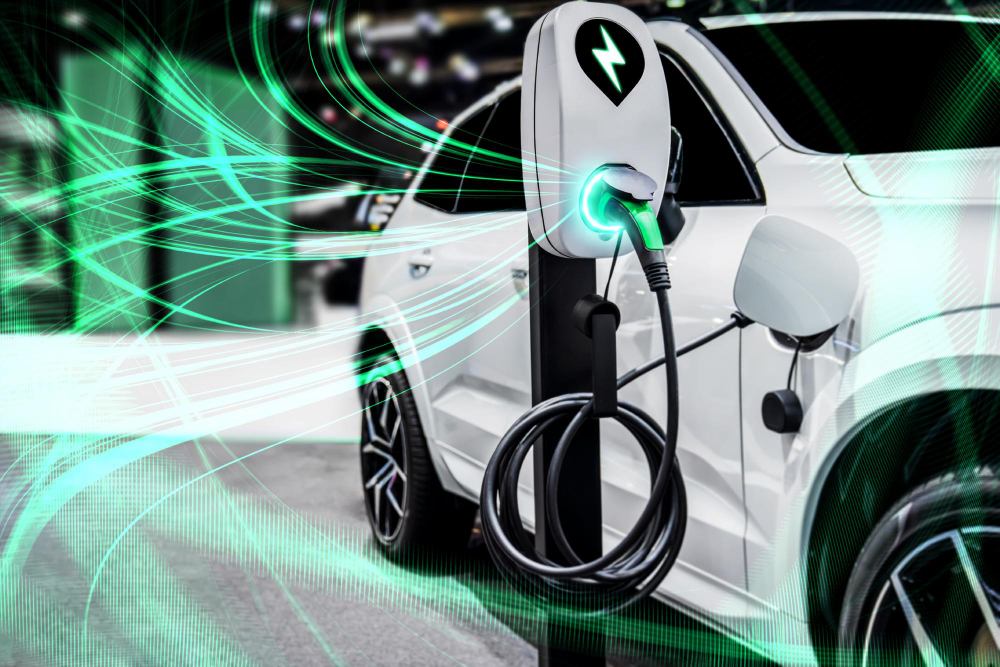Call This Friday to Get 25$ OFF
24-Hour Emergency Electricians in San Antonio
Call this Friday to Get 25$ OFF
Need an Electirician?
SCHEDULE SERVICE NOWCall Us Now
210-955-9600Call This Friday to Get 25$ OFF
24-Hour Emergency Electricians in San Antonio
Call this Friday to Get 25$ OFF
Need an Electirician?
SCHEDULE SERVICE NOWCall Us Now
210-955-9600
The electric vehicle (EV) has come a long way from its humble beginnings to becoming a symbol of sustainable transportation and innovation. The history of the electric vehicle is a fascinating journey filled with milestones, challenges, setbacks, and groundbreaking advancements that have shaped the automotive industry and our planet's future.
In this brief article brought to you by Mr. Electric, we take a quick dive into the complicated history of electric vehicles.
The roots of the electric vehicle are difficult to pinpoint but can be traced back to the 19th century when inventors and engineers began experimenting with electric propulsion. One of the first pioneers in this field was Anyos Jedlik, a Hungarian inventor who in 1928 built a small-scale model of a carriage powered by a simple electric motor.
Other early contributors to the electric vehicle include Scottish inventor Robert Anderson, who created the first crude electric carriage around 1832, as well as American inventor Thomas Davenport, who built the first practical electric vehicle in the 1830s. Around the middle of that same century, the invention of the lead-acid battery by Gaston Planté revolutionized EV technology, providing a more efficient and reliable power source.
The late 19th and early 20th centuries witnessed a surge in the popularity of electric vehicles, particularly in urban areas where their quiet operation and lack of emissions made them appealing. Electric cars were favored for short-distance travel, serving as taxis, delivery vehicles, and even personal transportation options for affluent individuals.
The Fritchle Electric, one of the earliest commercially available electric cars, was produced by the Fritchle Automobile Company. The company was founded by William Morrison in Denver, Colorado, and later sold to Andrew Riker, who continued production and marketing of electric vehicles.
One of the most iconic electric vehicles of this era, however, was the Columbia Electric Car produced by the Columbia Automobile Company. Introduced in 1897, the Columbia Electric Car boasted a range of up to 40 miles on a single charge and enjoyed popularity among urban elites.
The early 20th century saw a surge in electric vehicles' popularity, as they were favored for their ease of use, low maintenance, and lack of emissions, making them ideal for city driving.
However, the mass production of internal combustion engine (ICE) vehicles by companies like Ford and General Motors in the early 1900s led to a decline in electric vehicle sales. The availability of cheap gasoline and developments in ICE technology further overshadowed the electric car market for several decades.
It wasn't until the late 20th century that electric vehicles experienced a revival driven by growing concerns about pollution, oil dependence, and environmental sustainability. The development of modern lithium-ion batteries, with their higher energy density and longer lifespan, further revolutionized the EV industry and made electric cars more practical and appealing to consumers.
The 21st century heralded a new era for electric vehicles, characterized by rapid technological progress and a surge in market interest. Companies like Tesla played a pivotal role in popularizing EVs by introducing high-performance electric cars with long-range capabilities, sleek designs, and innovative features like autopilot.
Government incentives, environmental regulations, and public awareness campaigns also contributed to the growing adoption of electric vehicles worldwide. Countries like Norway, China, and the Netherlands led the way in promoting EVs through subsidies, tax incentives, and infrastructure development.
As we look ahead, the future of electric vehicles appears brighter than ever. Major automakers are investing heavily in electrification, with plans to phase out internal combustion engines and transition to fully electric fleets in the coming decades. Further, the rise of electric buses, trucks, and even planes signals a paradigm shift towards a cleaner and greener transportation ecosystem.
Moreover, advancements in battery technology, charging infrastructure, and renewable energy integration are driving EVs towards mainstream acceptance and affordability. Homeowners are even beginning to arrange their very own on-site EV charger installation systems, allowing property owners to charge their EVs at home.
Electric vehicles have revolutionized not just how we drive but also how we power and sustain our world. If you’re wondering how you can pitch in, consider installing an EV charging station on your property. This investment in your property can pay serious dividends in the form of fuel savings, and it can increase the value and marketability of your home.
To consult with a certified electrician or EVSE installers, call the professionals at Mr. Electric. We offer everything from emergency electrical repair service to complete EVSE installations. Our team is on standby to take your call today.